Reseller hosting often pops up on those lists of the best passive income ideas for developers. And if you're a developer who already manages sites for a roster of clients, considering hosting them yourself is indeed a very logical step.
But to figure out whether this is a good idea for you, you first need to understand the mechanics. That’s exactly why we compiled this quick guide: to walk you through how reseller hosting works, the skills it requires, and the simple math behind the profit. This article is part of our ongoing series dedicated to setting up and running web hosting businesses.
How Does Reseller Hosting Work: A Quick Glossary
When reading about how reseller hosting works, you’ll come across terms specific to the web hosting industry. You can use this quick glossary to familiarize yourself with the most common ones.
Reseller hosting company
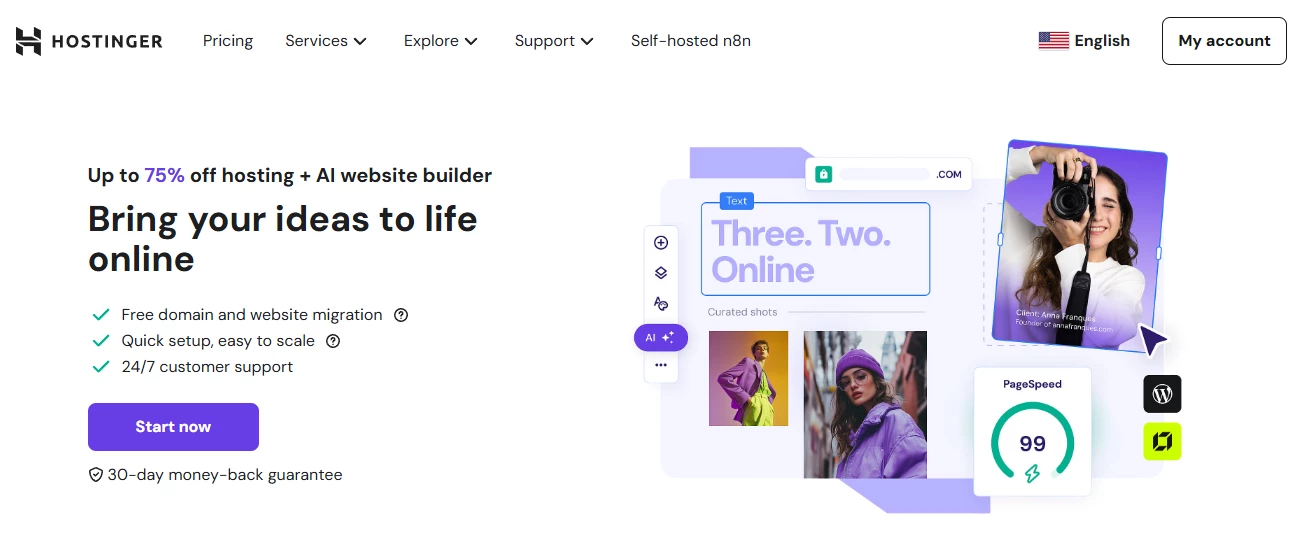
This is a web hosting company (e.g., GoDaddy, HostGator, etc.) that lets you sell a portion of its resources. As a rule, it’s a large provider that owns the servers, the network, and the data centers. You rely on them for the backend tech.
Reseller partner
That’s you. You buy the wholesale hosting from the supplier. You become the face of the business, manage clients, set prices, and run customer support.
Reseller program
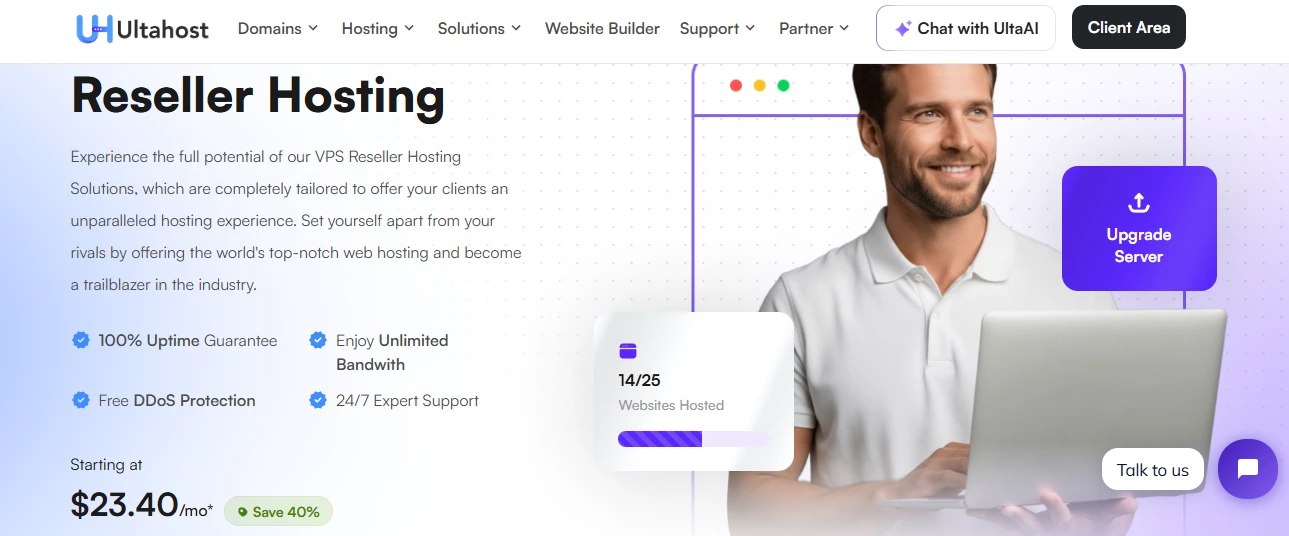
The framework of features, guarantees, and tools offered by the supplier. This includes the 100% white-label guarantee, technical support structure, billing software (WHMCS), and SLA commitments (e.g., uptime).
Reseller plan
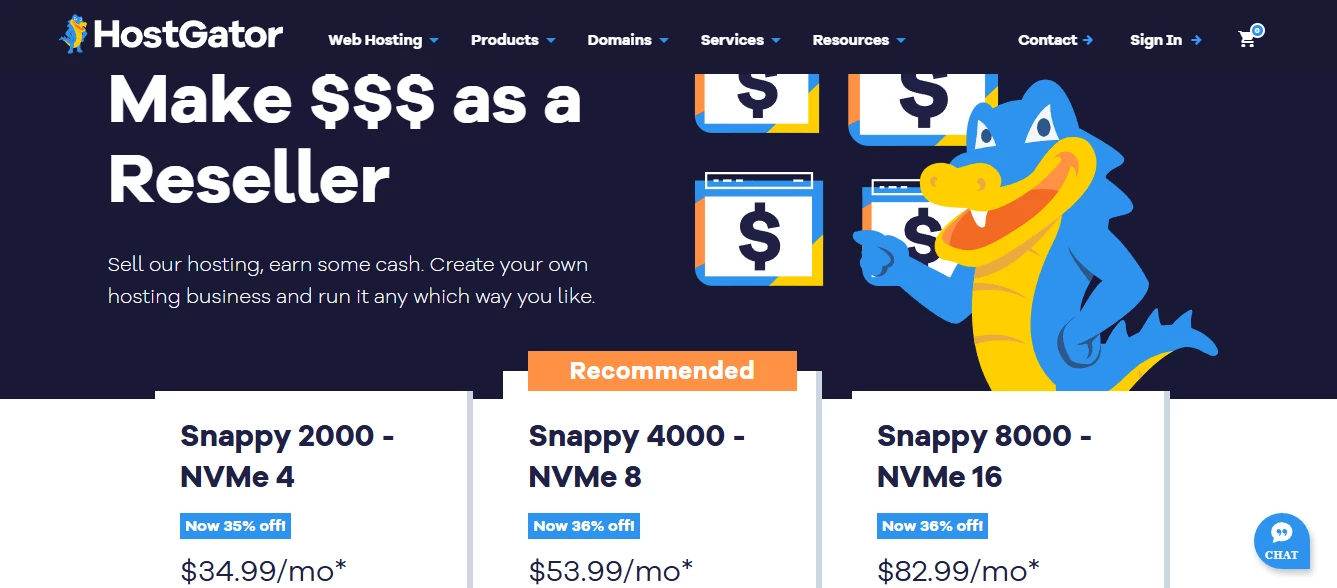
The fixed-cost subscription you buy from the hosting provider. This plan defines the total amount of resources (storage, bandwidth, account limits) you have to work with.
Reseller account
This is the dedicated account you manage, which contains your entire pool of wholesale resources. It is typically managed via a control panel.
Reseller packages
Your retail product. These are the custom-made hosting plans for your end-clients. You create them by dividing up the resources from your master reseller plan.
How Does Reseller Hosting Work
If you Google “how does reseller hosting work,” the most common explanation would say that as a reseller, you act as a middleman between a hosting provider and clients. That makes sense, but that’s not exactly so. You are the hosting provider’s client. You buy their plan, you use their ticket support, live chat support, and everything that clients normally use.
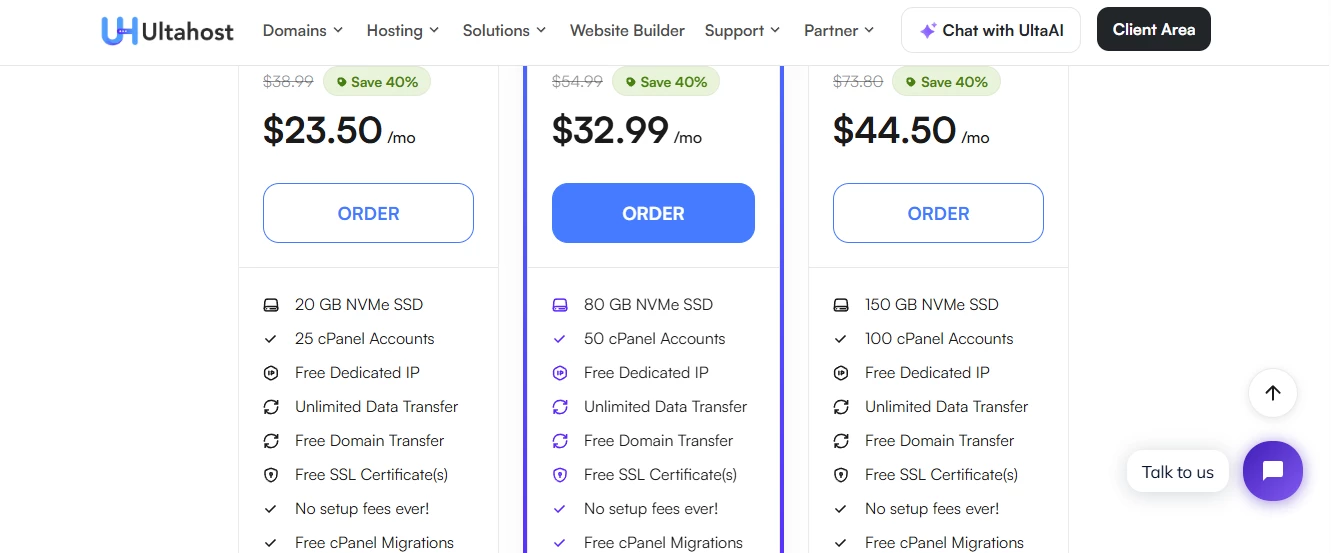
Your clients, in turn, get your offer. They don’t know you buy your resources from your parent provider. They don’t view you as a reseller, a middleman, or whatever else. For them, you are the hosting provider.
For example, you find a budget-friendly reseller hosting program. You can buy a budget-friendly plan, but price your offer above the market. The question is how you’ll persuade your clients to buy it at that price, but anyway, it is possible.
So, a very quick summary of how reseller hosting works would be this:
- Buy wholesale and get access
You purchase a reseller plan from a parent hosting provider. This gives you a master reseller account with a finite pool of resources (disk space, bandwidth, etc.) and full white-label control.
- Structure your product
You use the admin control panel to divide your bulk resources. This is where you create your custom reseller packages (e.g., "Basic 5GB," "Pro 20GB") and set limits for each.
- Automate sales & billing
You integrate an automation tool like WHMCS or a similar billing platform with your website. This software handles everything a hosting company does: displaying your packages, managing pricing, processing payments, and provisioning accounts.
- Serve and manage clients
A client purchases a package from your website. If using automation software, the client account is created automatically. Alternatively, you can handle the client's billing and purchase process manually. If so, you log into your admin control panel and create a new account. The client receives their own control panel login, branded with your company logo.
We don’t include the marketing step in this flow, but it’s assumed it’s there (it’s just that the marketing part isn’t specific to the web hosting business). If you are interested, we have a very detailed guide on how to get clients for a web hosting business that covers different types of marketing strategies and tactics.
How to Become a Hosting Reseller And What Skills You’ll Need
First, decide what you are going to resell. Web hosting, right? Yes, but actually, you can be reselling a whole lot of things.
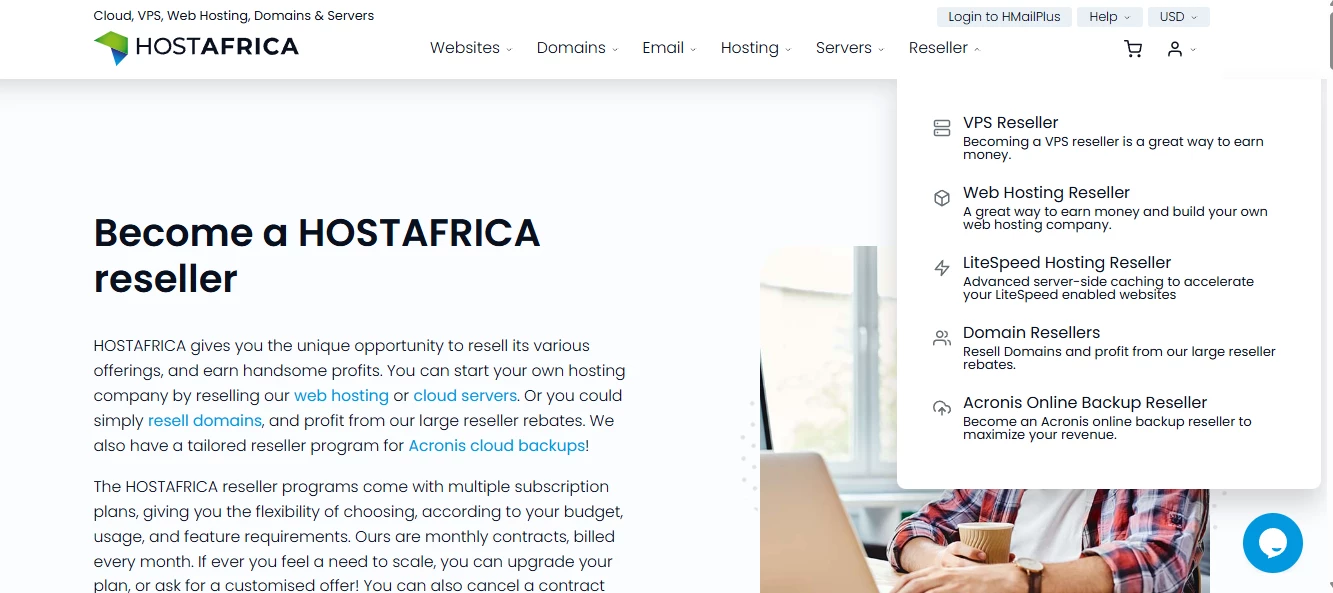
For example, HostAfrica’s reseller program covers many things, from VPS reselling to LiteSpeed reselling. In fact, many resellers offer a bundled suite of services. Your full offering could include:
- Domain Registration;
- SSL Certificates;
- Software Licenses (e.g., specialized control panels — we’ve got a hands-on instruction for how to bundle your VPS plans with a control panel).
Once you have your products defined, setting up your reselling business is primarily centered on using your admin control panel, just as we reviewed in the previous section:
- Plan your custom hosting tiers or reseller packages (e.g., "Bronze," "Silver," "Gold").
- Log in to your admin control panel to define the specific resource limits and features for each package you created.
- For a new client, either use your automation software to instantly provision their account or manually create a new user account in the admin control panel.
Want more details about how reseller hosting works? Check our step-by-step guide on how to become a hosting reseller.
As to the skills, the reseller model means you handle everything client-facing. While you may often read that you don’t need much tech knowledge to become a hosting reseller, some skills are still required.
Basic web hosting terminology
You must know what every term, protocol, and technology (like DNS, FTP, and SSH) means. This is essential for selecting the right reseller plan and diagnosing client issues. We’ve got a quick glossary above (specifically for a hostng reseller business), plus a bigger glossary here (the web hosting jargon in general).
Database fundamentals
You need to be familiar with the basic admin areas for common CMS platforms (like WordPress, via tools like phpMyAdmin). This will be necessary to assist clients with website errors or migrations.
Basic client security
You also need to know how to identify suspicious activity, understand common attacks (like brute-force and DDoS). Plus, it should be useful for you to guide clients on strong security practices.
Control panel navigation
You need fluency in your admin control panel to perform core tasks: creating packages, managing IP blocks, and updating DNS, to name but a few. There are many YouTube tutorials for this, where you can see how the basics work.
Email setup
Besides, if you're savvy with email setups, you can build an extra revenue stream by selling it as a paid service. Just be prepared for the trade-off, because email support is known for generating a huge volume of tricky, time-consuming tickets.
What Is A Reseller Account and How to Work in It
So when answering “how does reseller hosting work?”, the answer is inevitably centered on working with your reseller account. The latter is an account in your admin control panel. Its core job is to let you define your reseller packages. These are the limitations for each client type, showing how much resource is allowed: storage space, emails, bandwidth, and so on.
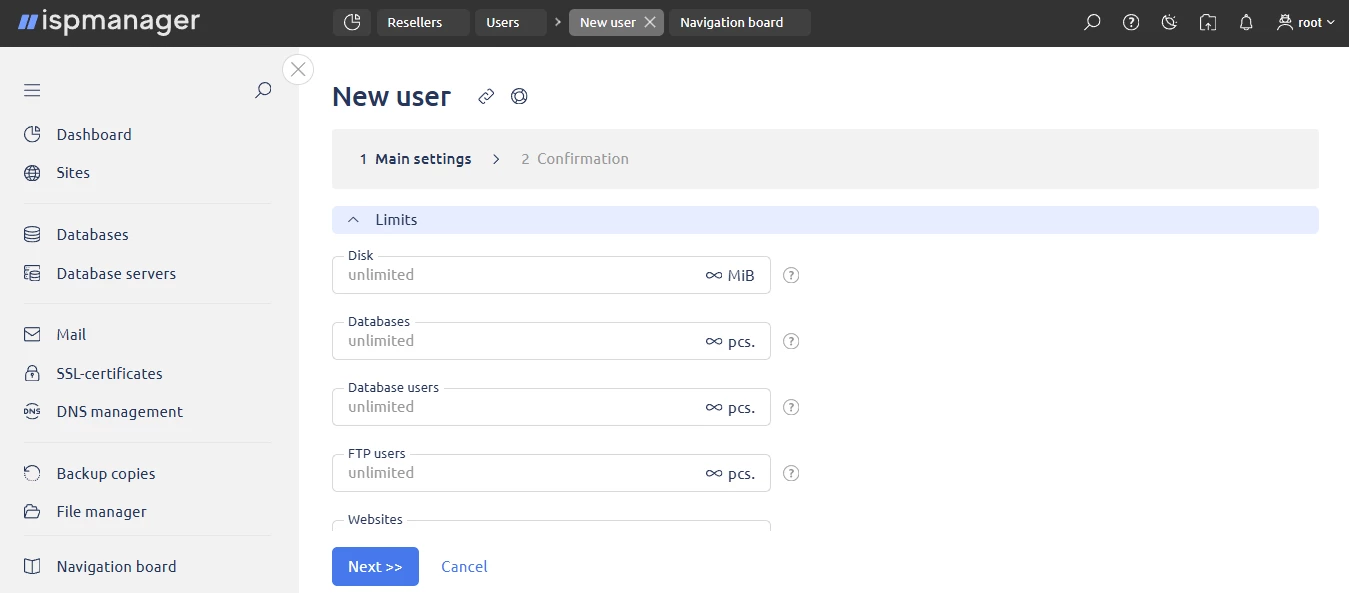
Since your clients will have different needs, you’ll naturally create several packages. The plans you sell on your website are a direct reflection of the packages you build inside your control panel.
So what you actually do in your reseller account is this:
- You create the client's new account when a package is sold.
- You track resource consumption (how much storage or bandwidth each client is using) as well as how many packages of each type are sold out.
- By watching that usage data across all your users, you decide when it’s time to either scale up your original reseller plan. Sometimes, you may also decide to adjust the features you include in your packages.
Ultimately, your reseller account is the operational hub where you transform bulk wholesale resources into profitable, client-ready retail products.
Pros & Cons of Reseller Hosting
As with any business model, reseller hosting has a trade-off. Put shortly, it’s an easy and cheap way to enter the market, but scaling it leads to a heavy workload.
| Pros of reseller hosting | Cons of reseller hosting |
|
|
Is Reseller Hosting Profitable?
Okay, given the pros and cons we just reviewed, you're probably wondering: is reseller hosting profitable?
The short answer is that it depends on the number of clients you can realistically acquire and support. We have a very detailed guide explaining everything about web hosting income, how much you can get, what it depends on, and all that.
If summarized, the calculations would be like this:
For roughly $40 a month, you can get a reseller plan that lets you host about 50 clients. Add another $30–$40 for automation software, and you get your fixed monthly overhead at about $70–$80.
Now, think about your pricing. You can't charge too much if you want to be competitive. If you price your packages modestly, say, $8 for the basic plan, $10 for a bigger one, and $15 for the most advanced, you can average about $10 per client.
At that rate, you need 8 clients to break even. Everything after that is profit. You then only need to realistically estimate whether you can acquire those clients and handle the support workload for them.
How Does Reseller Hosting Work: Wrap Up
To sum up, reseller hosting means buying server resources in bulk from a parent hosting provider, repackaging those resources into your own custom hosting plans, and selling them to your customers under your brand.
Despite the common belief that it’s entirely "hands-off," it definitely requires basic tech knowledge and fluency in your admin control panel. For those who already possess this expertise, it can be a side revenue stream, especially if you already have a built-in client base.